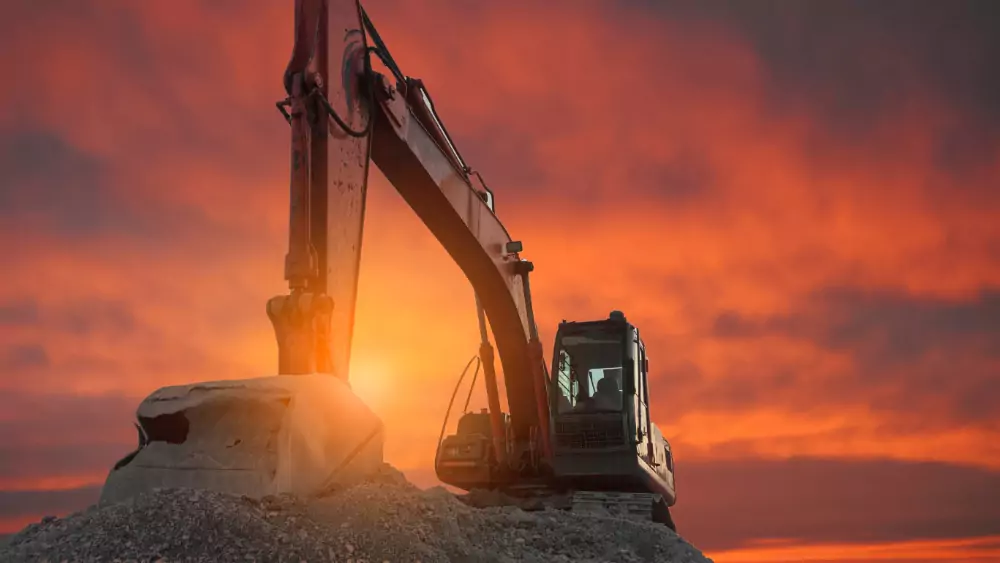6 Interesting Facts About Construction Equipment

Construction equipment shapes our world with productivity, facilitating infrastructure development, buildings, and more. This machinery can often be the unsung hero of construction sites, working tirelessly behind the scenes of a successful construction business and to ensure projects progress smoothly and efficiently. From high-powered excavators to sturdy cranes, each type of equipment is designed with specific functions in mind. Understanding the technology and innovation behind these tools is essential for anyone interested in the construction industry, whether professionals or enthusiasts. In exploring the dynamic world of construction equipment, discovering unexpected facts can deepen our appreciation for the technology we often take for granted.
Incredible Facts About Construction Equipment That Will Surprise You
1. The Evolution of Excavators
Excavators have come a long way since their inception in the early 19th century. Originally operated manually, early excavators required considerable human labor to function effectively. With the introduction of hydraulic mechanics in the 1950s, these machines transformed to become more efficient and powerful. Today’s excavators can complete tasks such as digging trenches, lifting heavy materials, and demolishing structures precisely and efficiently. According to the reputable manufacturers of excavator kits behind HawkExcavator.com, modern advancements also allow for various attachments, making them versatile for multiple applications. If you’re seeking high-quality excavators, consider contacting local kit providers. Following this approach, you can access expertise, ensuring you acquire precisely what you need for your construction endeavors.
2. Innovative Features in Modern Construction Equipment
Technological advancements have redefined construction equipment, introducing features that enhance safety, productivity, and overall performance. Equipment such as robotic arms and automation systems ensure high precision in construction tasks. Additionally, GPS technology is becoming more prevalent, allowing companies to track equipment location and usage in real-time. Coupled with telematics systems, operators can gain insights into performance metrics, enabling proactive maintenance and efficient resource allocation. As sustainability becomes a priority, manufacturers are developing eco-friendly machinery that minimizes emissions and fuel consumption. This blend of innovation helps reduce the environmental impact and saves companies money in the long run.
3. The Economic Impact of Construction Equipment

The construction industry contributes to the global economy, with construction equipment at its core. According to research from Statista, the global construction equipment market size can reach approximately $175 billion by 2025. This growth reflects increased urbanization and infrastructure development across various nations. Construction machinery enhances productivity, completing projects more quickly and efficiently than ever before. Moreover, advanced equipment helps maintain safety standards, reducing the risk of accidents and potential liabilities. As a result, many businesses view investment in quality construction equipment as a crucial step toward sustainability and growth in a competitive marketplace.
4. Construction Equipment and Safety Standards
Safety remains a top priority in the construction industry, where equipment failures can lead to disastrous results. Therefore, strict safety regulations govern the manufacturing and operation of construction machinery. Operators must undergo training and certification to ensure they can handle equipment responsibly. High-tech safety features such as automatic shutdown systems and proximity sensors are increasingly incorporated into new machines to prevent accidents. Furthermore, machinery manufacturers frequently conduct safety audits and workshops to ensure compliance with best practices. By emphasizing safety, companies can mitigate risks and enhance the reliability of their operations, contributing to a safer working environment.
5. The Environmental Considerations of Heavy Machinery
With growing environmental awareness, the construction industry has begun to take strides to reduce its ecological footprint. Construction equipment manufacturers are actively focusing on creating more sustainable machinery. Innovations like electric and hybrid-powered machines are becoming more common, providing alternatives that significantly lower greenhouse gas emissions than traditional diesel machines. Furthermore, equipment recycling programs encourage the responsible disposal of outdated machinery to minimize waste. This trend preserves natural resources and fosters a more sustainable approach to construction practices. As companies embrace eco-friendly policies, they contribute to both corporate responsibility and a healthier planet.
6. The Future of Construction Equipment
The future of construction equipment appears promising and is characterized by rapid technological advancements. Innovations like artificial intelligence and virtual reality are anticipated to reshape the industry further. Augmented reality applications could assist operators by overlaying information directly onto their field of vision, enhancing decision-making capabilities. Furthermore, drones will likely revolutionize site surveying and monitoring, allowing for efficient assessments of project progress. Remote operations are also set to become more prevalent, enabling workers to control machinery from a distance and enhancing safety on-site. Such technological evolutions present exciting possibilities and challenges for industry professionals to navigate in the coming years.
Conclusion
The construction equipment world is filled with exciting insights highlighting its impact on efficiency, safety, and the environment. From excavators’ evolution and innovative features to their economic contributions, these machines are vital to the construction industry. Acknowledging the importance of safely and sustainably handling equipment ensures this sector’s continued growth. As we embrace state-of-the-art technology and eco-friendly practices, the construction industry stands to benefit significantly in the years to come.

news via inbox
Sign up and never miss out on the latest news and updates at HighStuff




